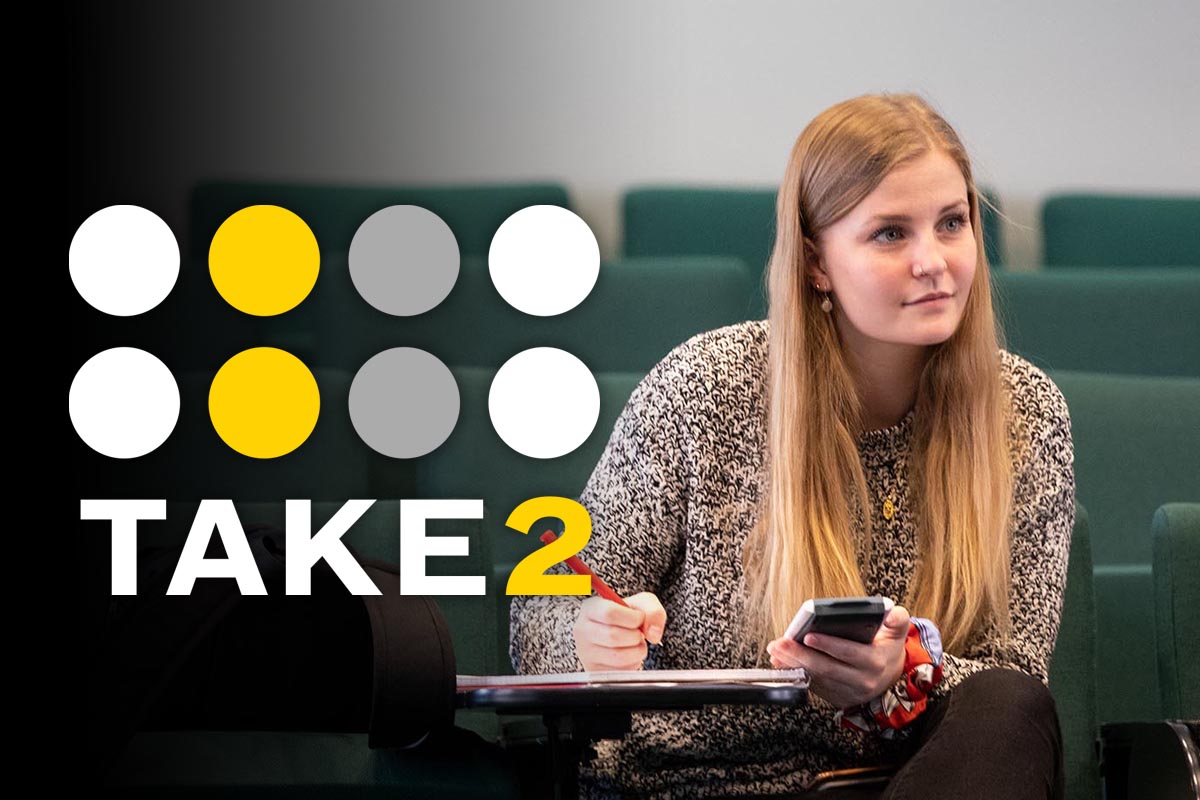Randolph College Ranks High On NSSE Survey of Student Engagement
LYNCHBURG–The benefits of Randolph College’s close community and strong academic programs were highlighted once again by its scores on the 2010 National Survey of Student Engagement (NSSE).
The College scored higher than the national average on all five of NSSE’s Benchmarks of Effective Educational Practices: level of academic challenge, enriching educational experiences, student-faculty interaction, active and collaborative learning, and supportive campus environment.
NSSE is a nationally-respected survey of students at colleges and universities nationwide. The survey, administered by the NSSE office at the University of Indiana, collects information annually from students about the nature and quality of their undergraduate experience and the extent to which they are engaged in effective educational practices empirically linked with learning, personal development, and other desired outcomes.
Sixty-four percent of Randolph’s seniors participated in the spring 2010 survey. “The experiences of Randolph College students underscore the strong engagement and development opportunities that students have during their four years at the College,” said Dixie Sakolosky, director of institutional research and assistant to the president.
Randolph College Rankings Compared to Total NSSE Respondents
Level of Academic Challenge
· 66 (Randolph College) vs. 57.5 (Total NSSE)
· Randolph College seniors reported a significantly higher level of academic challenge compared with students in other primarily baccalaureate arts and sciences colleges and in the full range of institutions participating in the survey.
· Factors reported by Randolph students such as time spent preparing for class and coursework that emphasizes analysis, synthesis, and making judgments about the value of information rather than just memorizing facts undergird Randolph’s strength on this benchmark. At Randolph, a senior capstone experience in every major prepares graduates with higher order skills to continually grow, explore new information, and adapt to change.
Active and Collaborative Learning
· 56.3 (Randolph College) vs. 51.4 (Total NSSE)
· This benchmark reflects students’ active classroom participation, collaboration in solving problems, and use of the information they learn to teach others. Seniors at Randolph reported higher engagement on this benchmark than students at similar colleges and significantly higher engagement than students nationally.
· The strength of Randolph seniors’ responses draws especially from their engagement in asking questions and participating in classroom discussions, making presentations, discussing ideas from their readings and course assignments with others outside of class, and tutoring other students. Not sitting on the sidelines or in the back of a large lecture class, Randolph students dig into subjects with their professors and each other to learn, question, master, and apply material.
Student-Faculty Interaction
· 59.3 (Randolph College) vs. 42.4 (Total NSSE)
· The interaction of students and faculty at Randolph is a distinctive characteristic. Students and parents expect close interaction at a small college, and Randolph delivers — in quantity and quality. In fall 2010, 95 percent of Randolph’s full-time faculty members have a doctorate or highest expected degree in their field, a notable indication of quality.
· The student-faculty benchmark for Randolph seniors exceeded the mean of students in the top 10 percent for high-performing institutions, and it was strongly and significantly higher than for students in the comparison sets.
· Contributing to Randolph seniors’ score were frequent interactions with faculty outside of class and responsive interactions with them in class. Randolph seniors reported that they often discussed ideas from readings with faculty outside of class, talked with them about their career plans, worked with them on activities other than coursework, and received prompt feedback from them on academic performance. In addition, significantly more seniors at Randolph than nationally reported working on research projects with faculty. Randolph’s 7-to-1 student-faculty ratio creates a synergy of learning excellence for both students and faculty.
Enriching Educational Experiences
· 59.4 (Randolph College) vs. 40.5 (Total NSSE)
· Study abroad, internships, foreign-language mastery, co-curricular activities, and interactions with others of diverse races, ethnicities, beliefs, and backgrounds enhance students’ educational experiences far beyond formal coursework. Randolph College seniors reported participation in these enriching activities at levels significantly higher than students in the comparison groups.
· At a minimum, all Randolph students study a foreign language as a general education requirement, and 40 percent of students participate in study abroad prior to graduation. Randolph student internships, from the neonatal unit at a local hospital to the Lyric Opera in Chicago, offer a world of applied learning experience, synthesis, communication, and creative problem solving. Randolph’s hallmark geographic and ethnic student diversity provides a rich environment to explore and understand the experiences and beliefs of people from different backgrounds, supporting the College’s goal of graduating globally-educated, interculturally-sensitive leaders, citizens, and educators. And co-curricular experiences abound, from the Greek Play to summer research, the Symposium of Artists and Scholars, Model UN, Ethics Bowl, American Culture adventures, athletics, and over 40 student clubs and organizations.
Supportive Campus Environment
· 64.4 (Randolph College) vs. 59.6 (Total NSSE)
· The Supportive Campus Environment benchmark indicates the extent to which students feel that the many facets of the College support their success. Factors include academic and social support; quality of relationships with faculty, staff, and other students; and help in coping with non-academic responsibilities. Again, Randolph seniors’ responses to the NSSE survey affirmed the College’s good practices in supporting its students.
· The strongest factors in Randolph seniors’ responses were the College’s emphasis on providing the support students need to succeed academically and the quality of their relationships with faculty members. The Learning Resources Center, the Writing Lab, and the Ethyl Center for math and science are available to support students at every level of ability and at every phase of their work. In their senior capstone experiences, students work on independent projects with close mentorship of their faculty advisors, presenting their research or creative outcomes to peers and faculty.
The NSSE project is sponsored by the Pew Charitable Trusts, the Carnegie Foundation for the Advancement of Teaching, and the Pew Forum for Undergraduate Learning.

